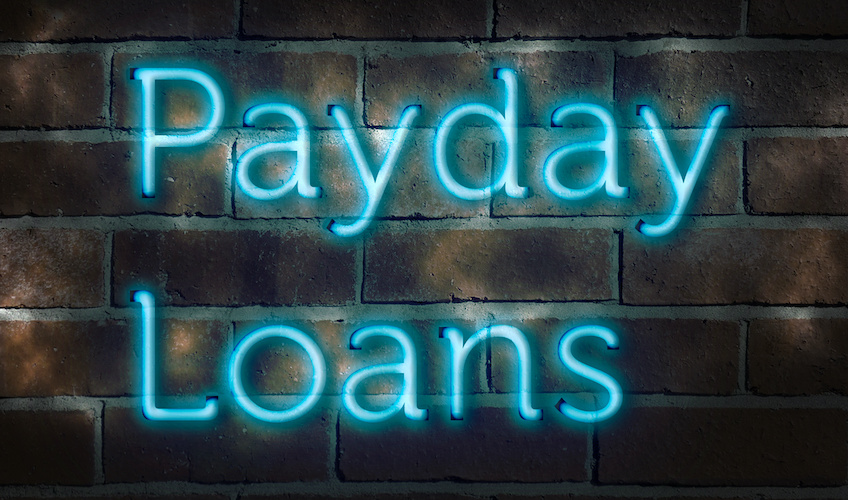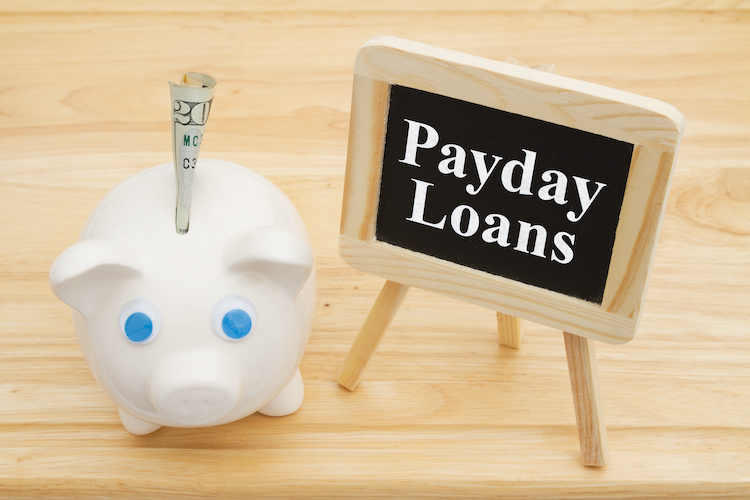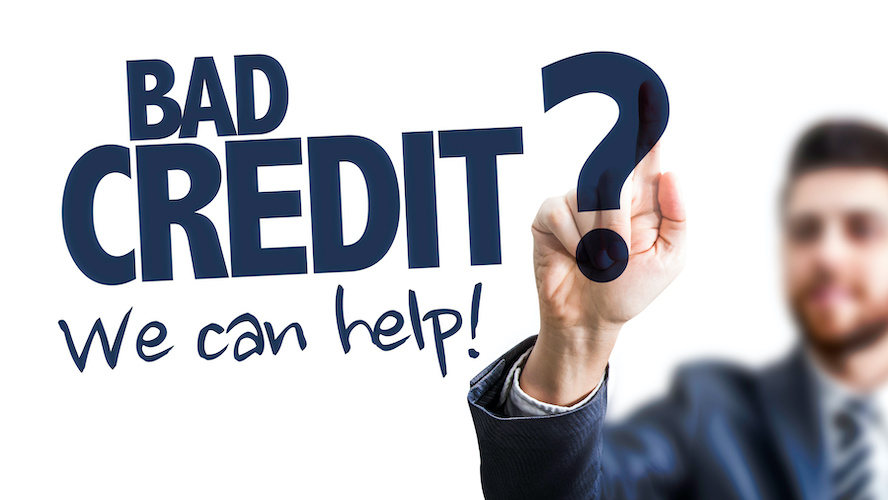(855) 285-5700
Mon-Fri 8:00am-5:00pm EST
What is a Payday Loan? Everything You Need to Know

Payday loans are short-term financial solutions, typically for $500 or less, and are due to be repaid by the borrower’s upcoming payday. Accessible through physical storefronts and digital platforms, these loans function as unsecured credit, eliminating the need for collateral. Their accessibility online adds a layer of convenience for borrowers seeking immediate credit.
With higher interest rates, consumers shouldn’t plan on using them to pay off debts with lower interest rates. The following article examines the nuances of payday loans, explores their costs, and offers insight into the legal landscape governing them, aiming to arm consumers with essential knowledge.
What is a Payday Loan?
Payday loans are short-term loans, typically for $500 or less, designed to be repaid with the borrower’s next paycheck.
These loans are usually due on the borrower’s next payday or when income is received, which can include wages or government benefits.
How Do Payday Loans Work?
For a brief overview read this article on Payday Loan Literacy or read below for a detailed breakdown of how payday loans work.
Payday Loan Requirements
If you are wondering, “What do you need for a payday loan?”, here is the scoop! To qualify, applicants need a bank account, government-issued ID, and proof of income.
Payday Loan Repayment Terms
Repayment is generally expected in a single lump-sum payment, which can be made through a post-dated check or electronic debit.
In certain cases, loans may be structured to allow repayment in installments over a longer period.
Interest Rates and Fees
The cost of borrowing can be higher than other loans, with fees that can equate to an APR of 400% for a two-week loan.
Many state laws cap payday loan fees, which can range from $10 to $20 for every $100 borrowed.
Regulations and Protections
Payday loans are not legal in all states due to varying regulations.
The Military Lending Act provides certain protections for active-duty service members and their dependents, including a cap on the Military Annual Percentage Rate (MAPR).

Common Features of Payday Loans
Repayment Structure: Payday loans are characteristically due in one full payment, often on the borrower’s next payday. This lump-sum repayment structure can be burdensome for borrowers, as it requires the full amount of the loan plus fees to be available in a short timeframe.
Loan Accessibility and Terms:
- Credit Checks: Lenders typically do not perform a full credit check so it won’t add a hit to their credit score.
- Loan Proceeds: The loan amount can be received in various forms, such as cash, check, electronic deposit, or on a prepaid debit card, providing flexibility in how borrowers can access their funds.
How Much Do Payday Loans Cost?
Payday loans are associated with higher costs, which are often a combination of interest rates and fees, depending upon the state laws. Here’s an overview of the costs associated with payday loans:
Fees
The average fees for payday loans are calculated per $100 borrowed, typically ranging from $10 to $20.
APR Calculation
The APR is calculated by dividing the interest paid by the amount borrowed, multiplying by 365, dividing by the repayment term, and then multiplying by 100.
For example, a $200 payday loan with a $20 per $100 fee for four weeks would result in a total repayment of $240, equating to an APR of 260%.

Comparing Payday Alternative Loans Products
When evaluating payday loans against other financial products, it’s crucial to consider the broader spectrum of available options and their respective costs and features. Here’s how payday loans stack up against some alternatives:
- Bank and Credit Union Loans: Following a 2018 announcement by the federal Office of the Comptroller of the Currency, banks can now offer loans under $5,000 without standard underwriting rules, potentially benefiting those with poor credit.
Credit unions provide Payday Alternative Loans (PALs) with capped interest rates, typically mirroring those of credit cards, and repayment terms of one to three months, which can help build credit. - Credit Cards and Personal Loans: Personal loans from credit unions or online lenders feature fixed interest rates and payment schedules, generally offering more favorable terms than payday loans. Banks offer small-dollar loans ranging from $250 to $1,000 as payday loan alternatives, which can also aid in building a good credit history.
- Other Loan Types: Installment loans, which can be secured or unsecured, offer loan amounts up to $100,000 with longer repayment periods and lower interest rates than payday loans.
Credit-builder loans target borrowers with low or no credit; funds become available after all payments are made, providing an alternative to payday loans.
Home Equity Lines of Credit (HELOC) allow homeowners to borrow against equity at an average interest rate of around 8%, a more cost-effective option than payday loans.
- Personal Support and Negotiation: Borrowing from family or friends, negotiating payment plans with creditors, or seeking guidance from credit counselors can provide more affordable and manageable financial solutions.
Peer-to-Peer loans or Lending Circles may offer negotiated interest rates, though these could have higher fees and interest rates than traditional loans. In summary, while payday loans provide quick access to funds, they are typically more expensive and riskier than other financial products, such as personal loans, which often offer better borrowing conditions with lower interest rates and longer repayment terms. Consumers should consider safer personal loan alternatives and weigh the long-term financial implications before opting for a payday loan.
The Legal and Regulatory Landscape
The regulatory framework for payday loans is complex, varying significantly across different jurisdictions within the United States and internationally. Here are the key aspects of this landscape:
United States
State Regulations:
Each state determines its regulations for payday lending.
Some states impose interest rate caps, the number of loans allowed, fees that can or cannot be charged, and the amount of money available.
Federal Oversight:
The Consumer Financial Protection Bureau (CFPB) plays a central role in regulating payday lending at the federal level, focusing on protecting consumers from predatory practices.
The Military Lending Act (MLA) offers additional protections for active duty servicemembers and their dependents, including a 36% cap on the Military Annual Percentage Rate (MAPR) .
Protections for Consumers
Consumer protections in the payday loan industry are a crucial aspect of financial regulation, aimed at safeguarding borrowers from predatory lending practices and excessive debt burdens. The following points highlight the key protections in place for consumers engaging with payday loans:
Federal Protections:
The Consumer Financial Protection Bureau (CFPB) has established rules to protect consumers from aggressive collection practices by lenders, specifically targeting the prevention of excessive fees that may arise from repeated attempts to withdraw payments from bank accounts. These rules apply to a range of short-term loans, including payday loans.
The Federal Trade Commission (FTC) enforces several laws to protect payday loan borrowers, such as the Truth In Lending Act, which requires lenders to disclose the terms and costs of loans to consumers, and the Fair Debt Collection Practices Act, which prohibits debt collectors from using abusive or deceptive tactics.
Military Protections:
Active duty servicemembers and their dependents receive additional safeguards under the Military Lending Act (MLA). This includes a cap on the Military Annual Percentage Rate (MAPR) at 36% and restrictions on fees for payday and other consumer loans .
Bank Involvement:
Since 2018, there has been a notable increase in banks providing small-dollar loans. These bank-offered loans are typically more affordable than traditional payday loans and have the potential to save consumers billions of dollars annually.
Challenging Assumptions:
Previous assumptions that single-payment loans were the only option for those in need of quick credit have been challenged by recent developments. It’s now evident that small-dollar loans with lower costs and smaller payments are viable and can coexist with access to credit. These protections and reforms are designed to ensure that while consumers have access to the credit they may require, they are not exposed to unfair practices that could lead to cycles of debt or financial instability. The ongoing support from regulatory agencies and changes at the state level reflect a commitment to providing safer, more affordable loan options for borrowers.
Conclusion
Through this exploration to answer the question “what is a payday loan?”, we’ve uncovered the intricacies of these short-term financial instruments and their impact on borrowers. As we pull back the curtain on the various facets of payday lending, including interest rates, fees, and the regulatory milieu, both consumers and policymakers are better positioned to navigate this complex terrain.
In conclusion, the payday loan industry remains a topic of intense scrutiny and debate. By sifting through the costs, comparing alternatives, and recognizing the importance of consumer protections, it is possible to formulate a more balanced and informed standpoint on these financial products. For those considering payday loans as a financial solution, remember to weigh your options carefully, and should the decision align with your circumstances, you can apply now for a potentially more manageable approach to bridging short-term financial gaps. Looking online for “payday loans near me”? Stop by a local branch today to take what you have learned about how to get a payday loan and put it into action.

FAQs
What should one understand about the nature of payday loans?
A payday loan is a type of short-term borrowing that usually comes with a higher cost. The borrower is expected to repay the loan by writing a post-dated check for the total amount or by having the funds automatically taken from their bank account on their next payday, which is typically within 31 days.
What type of loan is typically the most straightforward to obtain approval for, especially with poor credit?
For individuals with bad credit, the simplest loans to obtain approval for are usually payday loans, no-credit-check loans, and pawnshop loans. These types of loans often have minimal approval requirements but come with the trade-off of higher interest rates and fees. If your score is low, don’t fret, with Payday loans bad credit clients have an option to help solve their needs.
Is a payday loan secured or unsecured?
It is an unsecured form of credit.
References
– https://www.consumerfinance.gov/ask-cfpb/what-is-a-payday-loan-en-1567/
– https://www.investopedia.com/terms/p/payday-loans.asp
Working with Lending Bear is so easy!
You'll Love Lending Bear's Easy, Fast & Headache-Free Process


1. Contact Us
Apply online, in one of our stores or give us a call now.


2. Get Approved
Get fast approval with the customer service you deserve.


3. Get Your Cash
Cash in hand or in your bank account the same day.
*In order to receive a same-day online loan, it must be approved by 2:00 pm EST. Eligible loan amounts vary by state and product category.
There are a wide variety of loan products available in the marketplace, so your choice of lending products should match your financial needs. Small-dollar loans used over a long period of time can be expensive.





